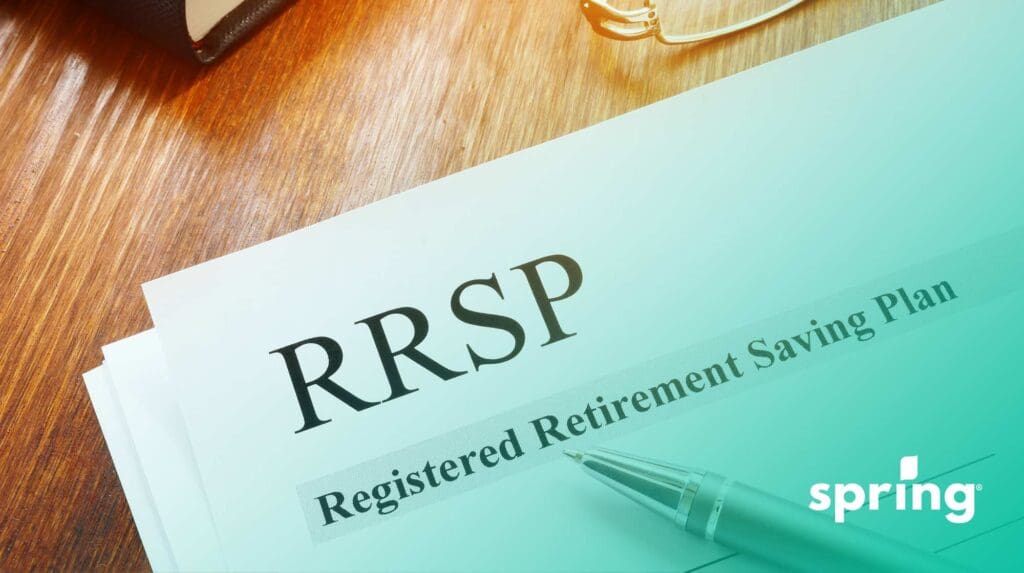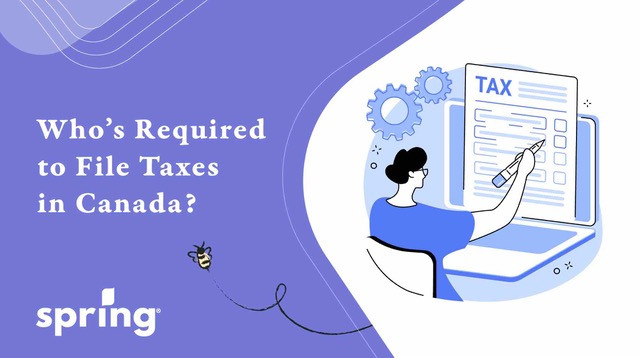That’s unfortunate because renters deserve the same expressed concern first-time home buyers are receiving, especially in the face of projected surging rents in the coming years.
As dreams of home ownership drifts further out of reach, more and more Canadians are becoming renters, and asking how much they should be spending on rent. So, if you’re just starting out as a renter, or looking for more insight into how you should manage your housing budget, we have everything you need to know about how much to spend on rent in Canada.
Average Rent in Canada Per Month
The average rent in Canada is $1,818 per month as of March 2022, according to rentals.ca. That average is for all types of rental properties and marks a nearly 7% increase from the year prior. The average for a one-bedroom rental is lower at $1,581, while a two-bedroom averages around $1,850.
The average rent in Canada is somewhat skewed by more expensive markets like Toronto and Vancouver, where you will find luxury rentals that don’t typically exist in other cities. For example, the average for all two-bedroom rental properties in Vancouver is $3,122.
Toronto, meanwhile, is slightly lower at $2,776 for a two-bedroom. When you compare those average rental rates to cities like Edmonton, where a two-bedroom averages for $1,260, or Winnipeg at $1,414 for a two-bedroom, you see how national averages get misshapen by pricier markets.
Cheapest Rent in Canada
The cheapest rent in Canada is mostly found in the prairie provinces. According to rentals.ca, out of a list of 35 Canadian cities, the absolute cheapest rent is in Lloydminster, a unique border town that straddles both Alberta and Saskatchewan. There you will find rents that average $744 for a one-bedroom and $853 for a two-bedroom.
Here’s 5 more Canadian cities with well-below average rents for all property types:
Regina – $1,020 per month
With one of the lowest rents in the country, Regina actually saw a nearly 5% decline in rental prices from 2021. That certainly bucks the trend compared to rival city, Saskatoon, which saw 7.6% jump in average rental rates.
Edmonton – $1,190 per month
It may not have envious winter weather but Alberta’s capital certainly offers affordable housing. Even with a 3.5% jump in rents year over year, Edmonton is still significantly below the national average.
Winnipeg – $1,326 per month
There’s a lot to recommend about Winnipeg – solid economy, rich history, lively arts scene – and perhaps most importantly, attractive rental rates. A one-bedroom is only $1,142 on average, which is almost exactly half of an average one-bedroom in Vancouver ($2,280).Gatineau – $1,540 per month
For those who find rentals in Ottawa on the high side ($1,874 average for all rentals), you need only cross the Champlain Bridge into beautiful Gatineau to find affordable rents, such an average one-bedroom for $1,353 average.
London – $1,790 per month
The city of London, Ontario, qualifies as affordable but that might not last for very long. The average rental for all properties in London surged 18% year over year. Still, an average one-bedroom is still only $1,332 in a town with a healthy population of post-secondary students.

Income You Need to Rent in Canada
The most used metric to determine what monthly income you need to rent in Canada is the 30% rule of thumb. This monthly budget metric is when you add the costs of rent, utilities, and other living expenses, for a sum that should be no more than 30% of your monthly pre-tax income. Anything above 30% is considered unaffordable.
Using the 30% formula, let’s determine what annual income you would need to afford the national average rent payments for a one-bedroom at $1,581. One tricky element is the varied price of utilities, such as municipal services. MovingWaldo pegs the national average for utilities, which includes gas, water, internet, cable, electricity, at $325 per month. With a monthly bill of $1,906, which equals $22,872 per year, you would need a gross annual income of around $76,000 to ensure your living costs are at or below 30%.
Another formula for determining rental affordability is the 55% rule. This is when your fixed housing costs – rent, utilities, renter’s insurance, and any other monthly expenses like internet, cell phone, cable – should not exceed 55% of your after-tax income. Using the above example, with a monthly housing expense of $1,906, your after-tax income should be around $40,000.
Are You Spending Too Much on Rent?
Whether you are paying too much on rent will depend on factors that go beyond just the financials. Perhaps you like the neighbourhood, or the building you are in, the landlord is nice, or the location is advantageous to your work. Tenants are willing to pay more for amenities and location, especially in the big cities.
However, if you are going to rely on metrics like the 30% rule – living costs should not exceed 30% of your pre-tax income – you can use the calculation to your current situation. Here’s an example, with the average rent of a one-bedroom in Vancouver being $2,280, you will need a gross income of around $95,000. In a more affordable city like Montreal, where a one-bedroom averages around $1,500, you would need a gross annual income of around $70,000. Of course, having a partner or roommate makes these income requirements substantially lower.
Income You Need to Afford Rent in Major Canadian Cities
Living in the big city has a lot to offer – nightlife, culture, professional sports, and of course, plentiful jobs and industry – but you need to be ready to pay for the privilege. Major Canadian cities like Vancouver and Toronto command some of the highest rents in North America. In fact, a report in 2021 described those two cities, plus Hamilton, as less affordable than New York and Los Angeles!
The Globe and Mail compiled a list of major cities and what income threshold you need to meet using both the 30% affordability rule of thumb and the 55% debt to income ratio rule between fixed housing expenses and after-tax income. Here’s a sample from the complete list:
| City | Avg. 1-bed | Avg. 2-bed | Gross income required – 1-bed | Gross income required – 2-bed | Gross income required after tax – 1-bed |
| Toronto | $2,013 | $2,715 | $90,000 | $118,000 | $64,000 |
| Vancouver | $2,176 | $2,983 | $95,000 | $128,000 | $68,000 |
| Montreal | $1,507 | $1,982 | $70,000 | $89,000 | $52,000 |
| Ottawa | $1,618 | $2,023 | $73,000 | $90,000 | $51,000 |
| Hamilton | $1,540 | $1,841 | $70,000 | $82,000 | $49,000 |
How Much Rent Can You Afford in Toronto?
Living in downtown Toronto can be really fun, and convenient for your job. You get all the perks of a major metropolis – restaurants, theatre, sports, and business – not to mention that big city buzz that comes with living in a dense, urban environment. However, finding housing in the downtown area comes at a big cost.
Rents in Toronto average $2,326 for all types of properties, but once you start moving further away from the downtown core, the price begins to drop. For example, rents in East York are noticeably less at $1,884 on average, while Scarborough is $1,831 on average. Both locations are suburbs of Toronto and only a transit ride away. You would need a household pre-tax income of around $82,000 to afford a place to live in Toronto’s suburbs. That income level should be doable with a partner or roommate.
If you want to live in Toronto proper, you will need a gross income of $118,000 to afford a two-bedroom according to the 30% affordability rule. That sounds like a lot, but could be manageable with roommates or a partner.
How Much Rent Can You Afford in Vancouver?
Rent in Vancouver is notoriously high and a growing source of tension for many households in the rainy city. Rents in Vancouver average $2,925 for all types of rental properties, marking a jump of almost 30% in a year, according to rentals.ca. That’s by far the biggest rental average gain in the country.
Using the 30% affordability metric, you would need a household gross income of $128,000 to afford renting a two-bedroom in Vancouver, and $90,000 for a one-bedroom. It seems unreasonably high, at least on paper, but if you can find roommates or move in with your partner, you can split the housing costs and manage on $45,000 annual income for a one-bedroom.
Like Toronto’s suburbs, rents drop as you move further out of the city core. For example, rents in bordering Burnaby for a one-bedroom average around $1,959, which is $300 less than Vancouver. Go even further out to Surrey, BC, and a one-bedroom drops to $1,600, according to Zumper. You would need a pre-tax household income of $78,000 to afford that apartment in Surrey.

How Much of Your Income Should You Spend on Rent?
We’ve talked extensively about the 30% rule, which is when you should not spend more than a third of your gross income on rent and fixed living expenses. That’s an admirable goal, and it should keep your finances in check if you can adhere to it, but it’s not always realistic.
We’ve discussed surging rents in many cities that have made the 30% rule nearly impossible, especially for minimum wage earners. More and more renters are crossing over the 30% threshold and even going as high as 50% of income. It’s becoming increasingly common as rents rocket up and wages fail to keep pace.
Spending 50% of Income on Rent
United States Senator Elizabeth Warren wrote a book that popularized a budgeting rule called “50/30/20”. This rule is when you divide up your after-tax income into three buckets – 50% on needs, 30% on wants, and 20% on savings and debt repayment, such as credit card debt.
In this scheme, it’s fine to allocate half your income to needs like shelter and other living expenses. Going over the 50% threshold means you might need to reduce expenses, like cutting back on streaming services or finding a cheaper rental.
Organizing Your Rent Payments
With prices on everything becoming more and more expensive, the easiest way to organize your payments and make sure you can afford all of your expenses is to break down your paycheck when it’s time to pay your bills. Start with the most important expenses like rent, pay those, then break down your money from there. This will help to show what you can realistically afford and if any changes to your budget need to be made.
How Much of Your Income Should You Spend on Your Mortgage?
All the affordability budgeting rules that apply to renters – the 30% rule or the 50/30/20 budget – can be applied to homeowners. In fact, most banks will not lend you a mortgage if they see your income level cannot support the required mortgage repayments, including in the event interest rates go up. It’s called a stress test. If too much of your income is eaten by mortgage, you will not qualify for the loan.
Mortgage calculators are ubiquitous and an easy way to determine what you can and cannot afford. Again, depending on who you ask, no more than 30% of your income should go to servicing mortgage repayments. However, a 50% threshold has become more realistic in the face of skyrocketing real estate prices.
How Much Does the Average Canadian Spend on Rent?
According to a 2016 Census, about one third of the country was renting their shelter at the time. That number has surely increased since, with real estate becoming prohibitively expensive for many renters wanting to become homeowners. The average amount Canadians spend on monthly rent is about $1,800 for all types of rental properties. That represents a 6.6 jump from the same time in 2021.
Rents experienced a drop in rates during the pandemic. Rents peaked at $1,954 average in Canada in September 2019 but dropped all the way to a $1,700 average in April 2021.
Rent Prices in 2023
As inflation continues to rise, so do rent prices. This means that a lot of Canadians are spending more than the 30% monthly income amount recommended on their housing costs. Unfortunately, this can’t be helped. In 2023, the median rent price in Canada is $2,045 per month, which is a 22% increase since 2021, and it shows no sign of slowing down. And, since this is the median rent in Canada, many Canadians are paying much more than this every month, depending on where they live.
How Much Rent You Can Afford
How much you can spend on rent really depends on how much you make. That said, if you bring in $4,000 a month, then around $1,200 is what you should be spending on rent per month. This isn’t always realistic though. This is why many Canadians are now getting roommates or starting side hustles.
If you live in Ontario, you could afford rent on a 1 bedroom apartment in areas like Windsor or Thunder Bay. If you were hoping to live in Toronto though, the average rent price sits around $2,300 per month. That said, with work from home becoming more and more popular, many people are moving to the more affordable areas in order to be able to continue living the lifestyle that they’re used to.
Spring Financial Can Help You Make a Security Deposit on a Rental
If you’re looking to start renting in Canada but lack that initial security deposit, Spring Financial can provide you with that much-needed starting point. Get the funding with a personal loan to secure a rental using a deposit, and start building up your credit score in the process. If you plan to take out a mortgage one day, it will be beneficial to start building a strong credit score today. Talk to us about your options.








